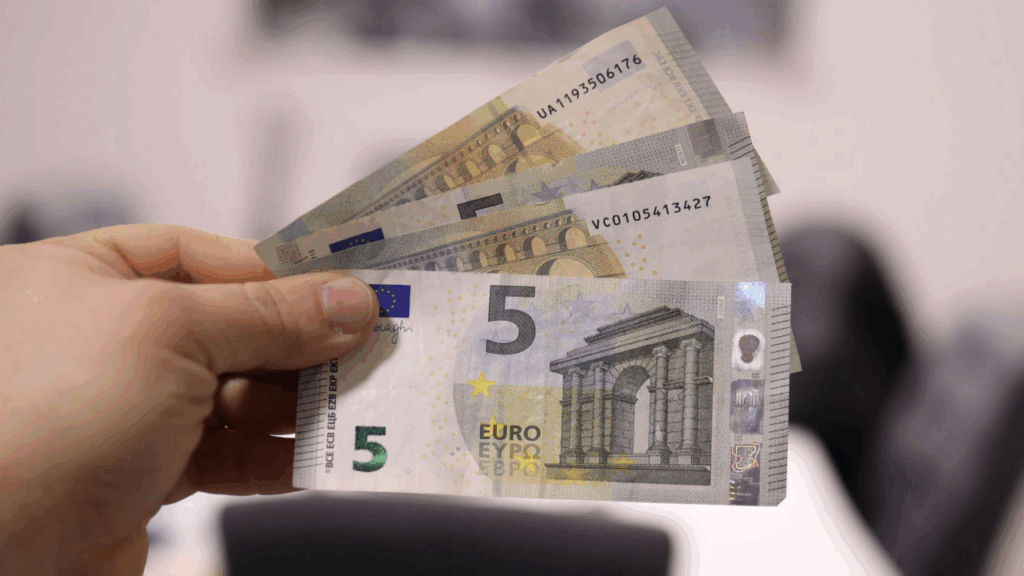컬쳐랜드 상품권 판매 Why The Location Of The Buyer Matters In Your Cultureland Gift Voucher Sale

컬쳐랜드 상품권 판매 This is the scenario in my head: You have somehow amassed a bunch of Cultureland gift tickets from friends or rewards or company bonuses. They’ve been accumulating for months, and one weekend you think, “Hey, maybe I should sell these.”
You search out online buyers, and there’s seemingly no end to them, some paying 95 percent many months; others 93 percent, still others almost 98. Out of curiosity, you connect with three potential buyers. To your amazement, the motel in Seoul is charging a higher rate even as those from Busan or Daejeon are quoting lower rates.
At first blush, this seems like a raw deal. Why should the region where the buyer just happens to live impact your payout? But then you quickly learn that in the world of 컬쳐랜드 상품권 판매, location is a key factor in two ways: You get more or less money based on your proximity to one; and your cash comes sooner and there are less security concerns if you’re in a safe, public place.
What Is 컬쳐랜드 상품권 판매, Really?
What people are discussing when they describe “컬쳐랜드 상품권 판매” is selling Cultureland gift vouchers whether paper or digital to a licensed buyer or exchange company in return for cash.
These are vouchers that Korea uses in its prepaid payment system, such as for online games, e-commerce and culture. Being widely accepted made them the most traded voucher in the secondary market.
But not all buyers are the same.
Seoul and Major City Buyers
They do thousands of transactions a day, have good relationships with voucher systems and mostly pay within minutes. Competition between them also maintains rates of pay relatively high.
Provincial or Small-City Buyers
They use secondary social trading networks and manual verification. The relatively lower buyback rates and longer processing times are due to the smaller volume.
Online-Only Buyers
They cater to customers all over the country and are convenient. Their rates tend to be between those of urban and provincial loans, depending on liquidity.
With two sellers who have the same ₩100,000 voucher, they may not be paid out the same thousands of won depending on the location of where you live.
How It Works Step by Step
Voucher Type Check
Determine whether the voucher is digital or physical. Digital codes are checked immediately on Cultureland’s system, while paper ones can have image uploads or require manual approval.
Buyer Search
Find real buyers using search engines or established trading platforms. Make sure they show you a business registration number and working contact details.
Rate Quotation
The buyer offers an interest rate, typically between 90 percent and 95 percent. Rates can change daily based on demand, payment method and service volume.
Verification Process
Upon the confirmation of a rate, the seller will transfer voucher particulars for verification. Legitimate buyers never ask for superfluous personal information.
Cash Transfer
Funds are transferred to the seller’s bank account or e-wallet the second a payment is confirmed. Depending on the buyer’s system and location, the process can take anywhere from minutes to up to an hour.
All those steps seem straightforward, but efficiency varies by the buyer’s region. There is that the major-city buyer often wraps up in eight to 10 minutes. A smaller buyer might be longer, due to inadequate staff or manual confirmation.
How 컬쳐랜드 상품권 판매 Interacts with Other Systems
Cultureland is set up as part of Korea’s larger voucher network, which also includes HappyMoney, BooknLife and department store vouchers.
Some buyers also have other types of vouchers that they handle, as systems tend to overlap like this. Brokers who use multiple vouchers usually have better prices, as they trade more. For sellers, this means a single buyer may redeem multiple vouchers within the same transaction, thereby enhancing convenience and liquidity.
This network provides experienced traders with the ability to hedge rates and reduce risk, guaranteeing constant payouts on various voucher markets.
When Selling Becomes a Lifesaver
Emergency Expenses
Vouchers can be converted into cash to take care of unexpected hospital fees, repairs or rent deadlines. Voucher exchanges frequently go through in minutes, providing immediate relief.
Delayed Salaries
Freelancers or part-timers who need to make up for a late payment can sell vouchers in between paydays. It’s a cash-and-carry option with no need to borrow money.
Family or Educational Needs
Parents have sold unused vouchers to pay for tuition, allowances or immediate family needs. It keeps household budgets balanced.
Small Business Cash Flow
Merchants frequently redeem vouchers to help meet liquidity needs when sales are slow, say to suppliers or for fixed costs.
In each instance, proximity to a trusted buyer facilitates quicker cash exchange and more seamless deals.
The Risks Not Found on a Liability Waiver
Selling vouchers is a way to provide flexibility, but there are also risks if you’re not careful.
Fake Merchants
This is because scammers are creating a copy of these legitimate sites and then disappearing with your voucher codes. Always verify that a business is verified or reviewed by other users.
Excessive Fees
Others may offer a high exchange rate but then subtract undisclosed processing fees. NB -The Full Cash out value should be explained before codes are confirmed.
Unlicensed Dealers
Unregistered exchanges do not adhere to consumer protection standards. That means no refunds or legal help if problems occur.
Data Misuse
All the genuine companies will only ask for your voucher number and bank details. If someone requests an ID or credit card information, it’s a red flag.
Knowing these risks helps to prevent loss of money and identity theft.
What’s Legal and What’s Not
Voucher sales are legal only if the public knows about them, because they cannibalize attendance from the gate.
Legal Activities
Purposeful sales (Only registered businesses with tax receipts and records are accepted.
Trading in tickets for one’s own personal use, not to conceal illegal kickbacks.
Keeping a file documenting the full transaction.
Illegal Activities
Creating false Cash Transactions through bogus purchases.
Using counterfeit invoices or accounts.
Working with ghost stores, which are ones that exist only for credit card laundering.
Markets, like other transactional systems, including the fair trade commission and financial supervision services. Sellers should check a company’s registration number before continuing with the sale.
When 컬쳐랜드 상품권 판매 Is the Better Option
For some borrowers, selling vouchers can produce a safer, quicker alternative to loans or credit card cash advances.
No Interest or Credit Impact
You’re liquidating an asset that you already have. There are no interest charges or payment obligations.
Speed and Convenience
Transfers in real time are the norm. No paperwork, no waiting periods.
Flexible Amounts
Sell only what you need. There are no minimum or commitment levels, unlike loans.
Nationwide Access
Digital transactions allow sellers in any part of Korea to sell instantly to buyers, while buyers within big cities also have the advantage to verify faster.
Comparably Low Risks to Cash Advances
Credit card cash advances come with steep fees and interest. Voucher sales, on the other hand, bypass those additional costs all together.
This means that voucher sales can be one of the most useful short-term liquidity tools.
Quick Checklist for Safe Selling
Before sale completion, ensure that each of these items is in place:
- Verify the Buyer’s Credentials
- Compare at Least Three Offers
- Protect Voucher Information
- Request Transaction Proof
- Keep All Logs
- Observe Operating Hours
It’s these small steps that stop big problems, and keep your deal honest.
For Example
One Daejeon student was carrying ₩300,000 worth of Cultureland vouchers (earned through part-time job benefits). When his laptop died before exams, he was desperate for cash. He did his research and found a verified buyer in Seoul offering 95 percent. His bank account received the money within 10 minutes.
His classmate sold to an area dealer who posted 90%. It took an hour to do, and the outcome was a reduced payout. The discrepancy was derived from systems access those in Seoul had been using the automated Cultureland verification process, while buyers in the provinces had not.
The sample demonstrates that the rate and reliability are influenced by buyer position.
Tips from Regular Sellers
- Use National or Multi-Branch Platforms
- Be Skeptical of Unrealistic Offers
- Choose the Right Time to Sell
- Convert Paper to Digital
- Communicate Professionally
Simple pointers that distinguish first-time sellers from those in the know and that will make things smoother.
Wrap-Up: Think twice before selling.
Ask yourself one simple question before selling: who am I selling to, and where are they?
The thing is, it kinda gives the trade in simplest and fastest way to get CFS at cash. But without verifying the legitimacy and location of the buyer, you’re gambling on lower rates or unnecessary delays.
City buyers generally pay more quickly and at higher rates as they move more trades for example trading 롯데백화점 상품권 매입 Lotte Department Store gift certificate purchase and have direct access to voucher APIs. Regional dealers may be slower, but they can still be useful when verified.
It’s not desperate to sell vouchers; it is frugal. Employ it strategically to compare, verify and get companies you know are reputable. And the best decision turns the value you have into the opportunity you need right now.
FAQ

Q1. Can I sell Cultureland gift cards all over Korea?
Yes. Sales are available nationally, online and in stores. But large-city purchasers like those in Seoul, Busan and Incheon often offer higher rates and faster service because of their better infrastructure and greater demand.
Q2. Is voucher selling legal?
Yes. Selling through registered, tax-compliant companies isn’t illegal. Do not visit unregistered websites or social media traders who cannot provide receipts.
Q3. How long does payment take?
Usually 5–15 minutes for digital vouchers or up to an hour for paper. The time frame is based on buyer’s system speed and verification of purchase.